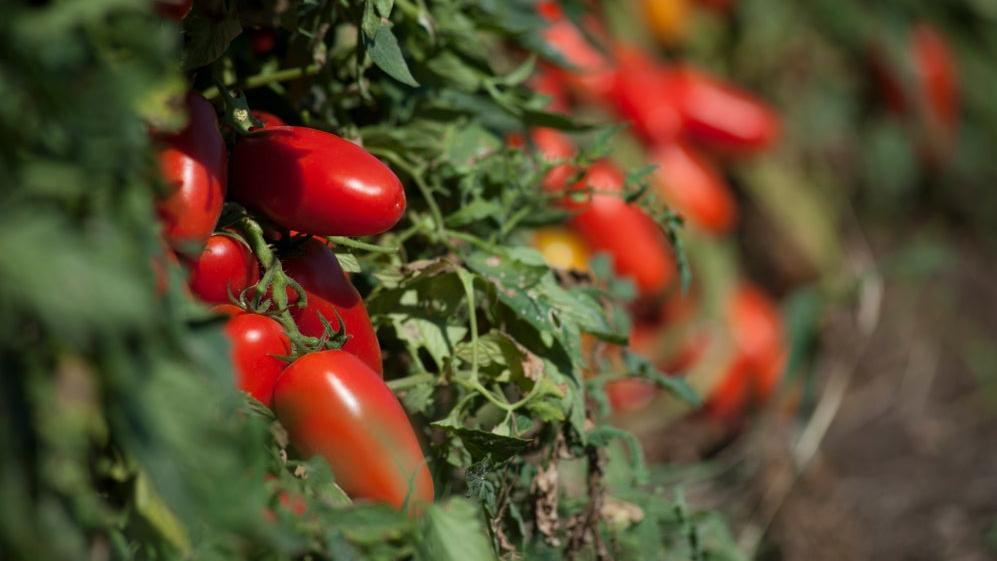How To Distinguish Real San Marzano Tomatoes From Imposters
Fake San Marzanos are everywhere. Here's how to identify the real thing.
From counterfeit Yellow Tail wine to unnatural "natural" vanilla flavor, food imposters lurk around every corner. This week, I learned that my cherished San Marzano tomatoes are also prone to fakery. I'm behind the times; Taste reported on this back in 2017, calling San Marzanos the "fake Rolex of canned foods." Here's how to separate the genuine article from the phonies.
What are San Marzano tomatoes?
Food & Wine explains that, "much like a Chianti must be made in the Chianti region of the country to be labeled as such," San Marzano tomatoes must be grown in the Agro Sarnese-Nocerino region of Italy's Sarno Valley to earn their classification. These plum tomatoes are prized for their rich flavor and very mild acidity, making them a prime candidate for a classic marinara or bolognese.
But as these tomatoes have grown in international acclaim, fake San Marzanos have become more and more common. Taste cites the president of Consorzio San Marzano (Consortium for the Protection of the San Marzano Tomato Dell'agro Sarnese Nocerino), who in 2011 said that just 5% of tomatoes in U.S. grocery stores are real San Marzano tomatoes.
How to identify fake San Marzanos
There's only way to confirm that your canned tomatoes are genuine San Marzanos: look for the "DOP" emblem on the can's label. Per Serious Eats, DOP stands for the Denominazione d' Origine Protetta (essentially, "protected designation of origin"). The DOP certification guarantees that your tomatoes were grown in Agro Sarnese-Nocerino.
This just goes to show my own susceptibility to sneaky food packaging. My go-to brand sports a fancy red-and-white label, which proudly displays the words "POMIDORI PELATI." The first time I saw these bad boys on the grocery shelf, I must've sounded just like the dad in A Christmas Story. "Pomidori pelati!," I exclaimed. "Must be Italian."
Turns out, "pomidori pelati" translates to... peeled tomatoes. And my go-to brand with the fancy label? Those tomatoes were "Grown Domestically in the U.S.," per the fine print on the can. What a fool I am!
That said, I've been using these tomatoes for months and they're lovely. Will I switch brands in pursuit of authenticity? Maybe once or twice, but there's a good chance I'll revert back to my brand of choice. But if you're committed to serving the most authentic tomato sauce you can muster, make sure you read the label closely.
